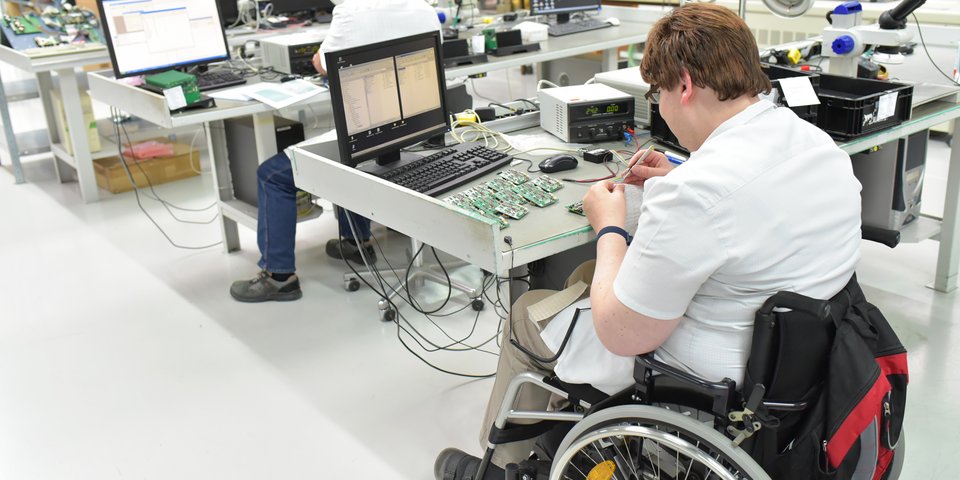
Equal participation and non-discrimination
New ten-year EU strategy on the rights of people with disabilities.
SW – 03/2021
More than 87 million people with
disabilities live in the EU. With its new EU Disability Rights Strategy 2021 - 2030, presented on March 3, 2021, the EC
aims to contribute to equal participation and non-discrimination in the
accessibility, health and social protection sectors.
Ensuring accessibility
The basic condition for equal and
unrestricted participation in social life is accessibility. "Accessible
EU" aims to build a knowledge base of information and good practice
covering e-accessibility in all sectors, to stimulate policy at national and EU
levels and to facilitate the implementing of existing EU legislation.
Exercising rights
The EU Commission, together with the member
states, would like to support people with disabilities in exercising their
right to freedom of movement, amongst other things. Building on a pilot project
carried out in eight countries, it will propose to introduce a European
disability ID by the end of 2023, which will be recognised in all member
states.
Accessing quality and sustainable employment
Independent living and participating in
society include both economic independence and social inclusion, which includes
participation in the labour market and access to skills that enable this. Next
year, the EU Commission will present a package to improve labour market
opportunities for people with disabilities. The aim is to support member states
in implementing the relevant employment guidelines as part of the European
semesters.
The exchange of experience will be promoted
along with a view to strengthening employment and integration services,
creating recruitment prospects, developing quality jobs in protected employment
and in the open labour market as well as ensuring decent working conditions,
health and safety at work and vocational rehabilitation programmes.
Member states are invited to set targets by
2024 to increase the employment rate of people with disabilities and to reduce
the employment gap between people with and without disabilities (see reports 09/2020 and 05/2020).
The European Parliament is more ambitious
in its resolution of March 10, 2021 about implementing equal
treatment in employment and occupation, taking into account the UN convention
on the Rights of Persons with Disabilities. MEPs have called for measures with
binding targets and measurable objectives, deadlines and monitoring of the full
implementation of the convention. Fines collected should be reinvested for
inclusion purposes.
Social protection and healthcare
Despite progress made, member states are
still called upon to close gaps in social protection for people with
disabilities and to reduce inequalities, e.g. by compensating for the
additional costs associated with disability. There is still a need for
healthcare action as people are four times more likely to report an unmet
healthcare need and medical care is often too expensive, too far away or not
accessible.
In 2022, the EU Commission plans to launch
a study on social protection and services for people with disabilities in order
to identify best practices in relation to retirement income, health insurance,
cash benefits, benefits in kind and additional costs due to disability. Reforms
of the social protection and disability classification framework will continue
to be supported, including those through the Technical Assistance Instrument.
Outlook
The EU Commission will establish a Disability
Platform in 2021 to replace the existing High Level Group on Disability and support the implementing
of this and national strategies. It intends to present a framework for
monitoring the implementing of the strategy before the end of 2021. An
implementation roadmap should be in place by 2023. Progress is to be assessed
in 2024 and targets and measures will be updated as needed. Both the European
Parliament in its resolution and the EU Commission call on the member states to
abandon their "blockade" with regard to a general directive on the
application of the principle of equal treatment beyond employment and occupation.
